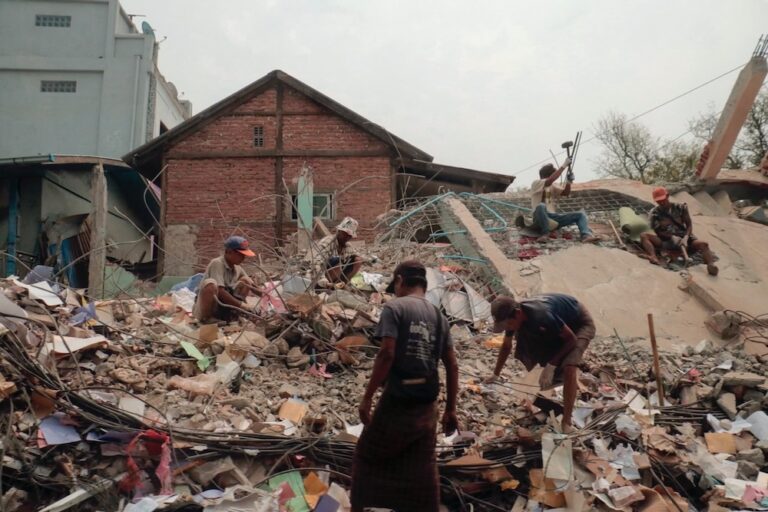(Mizzima/IFEX) – The following is a statement from Mizzima News, an interim member of IFEX: “Public service” mobile phones disconnected in Burma, further limiting access to information With the media fully controlled and the Internet restricted, the Burmese junta is now paving over cracks in its hold of information brought on by advances in telecommunications. […]
(Mizzima/IFEX) – The following is a statement from Mizzima News, an interim member of IFEX:
“Public service” mobile phones disconnected in Burma, further limiting access to information
With the media fully controlled and the Internet restricted, the Burmese junta is now paving over cracks in its hold of information brought on by advances in telecommunications.
Authorities in Lashio town of Shan state in northern Burma recently disconnected the lines of more than 400 mobile telephones that had been rented for public use, further restricting local residents’ access to information from relatives and friends outside the country.
Because landlines are beset by a host of infrastructural problems and constantly tapped by the authorities, making communication with people overseas especially difficult, Public Call Office (PCO) operators in Lashio had hired mobile telephones for about 60,000 Kyat (approx. US$50) each for their business.
These “public service” mobile phones are a popular alternative to landlines since even a simple overseas call through the latter requires an explanation to the operators and the call rates are extremely high.
They also serve as one of the channels of information for those living inside the totalitarian state.
However, the lines of these mobile telephones have been temporarily disconnected following a review of the profile of their owners as the Burmese authorities have clued in on this practice, targeting those whose bill exceeded over 100,000 Kyat (approx. US$80) a month.
“The authorities said the mobile lines have been cut off because they are used for commercial purposes. But I feel that it is not their concern whether we use them for commercial activity or not, as long as we can clear the bill,” a PCO operator told Mizzima.
Although some mobile phone users have provided valid reasons for their excessive bills, none of the connections has been revived; in fact, more mobile phone lines were disconnected in Lashio town after that.
Prior to this, in mid-July 2007, Burmese authorities banned an Internet telephony, MediaRing Talk, which enables free calls to specified countries through the Internet (see IFEX alert of 30 July 2007).
On 13 July, Burma’s Telecommunication Department, under the Ministry of Communication, Posts and Telegraph, issued a notice that mobile phone users should inform the department of overseas calls that gave local number identifications. These calls are made through Voice-over-Internet Protocol (VoIP), rendering obsolete the use of overseas phone cards that have to go through the ministry, which charges US$0.24 per minute. By preventing calls made through VoIP, the ministry is attempting to curb the flow of information from abroad that is facilitated by the cheaper rates.


